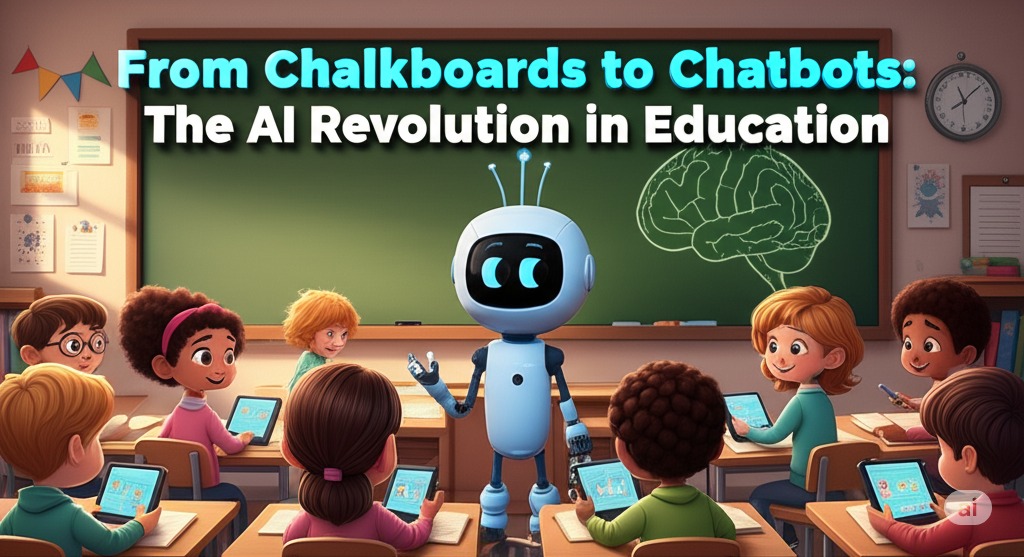Loading advertisement...
06-06-2025

AI is reshaping education to make students future-ready through smarter, personalized learning.
In a rapidly evolving world, it's no longer enough for students to memorize facts. Being future-ready means being adaptable, creative, digitally fluent, and capable of lifelong learning. AI helps cultivate these skills by offering a dynamic, responsive learning experience that traditional methods often lack.
Education is shifting from one-size-fits-all classrooms to flexible, intelligent systems powered by AI. These systems:
This transformation empowers students to take control of their education like never before.
One of AI’s greatest strengths is personalization. Here's how:
Custom learning paths based on student strengths and weaknesses.
Instant feedback that helps correct mistakes immediately.
Gamified apps that make learning fun and interactive.
Students no longer just learn with AI—they learn better because of it.
AI isn’t replacing teachers—it's enhancing them. Educators are now:
Automating repetitive tasks like grading.
Using data insights to track student progress.
Spending more time on creative instruction and emotional support.
This collaboration allows teachers to do what they do best—inspire.
Around the world, countries are embracing AI:
India: AI education introduced under NEP 2020.
Finland: Offering free AI courses to students and adults.
USA: Classrooms using adaptive platforms like DreamBox and Khan Academy.
The global push for AI in education is accelerating fast—and students stand to benefit most.
Here are some AI tools shaping education today:
Khan Academy & Duolingo: Adaptive learning platforms.
ChatGPT & Grammarly: Language support and writing assistance.
Socratic by Google: Homework help through AI.
These tools act like digital learning buddies—available 24/7.
AI in education isn’t just about apps and algorithms. Families should:
Learn about digital privacy and data security.
Guide students in ethical use of technology.
Encourage a balanced approach between screen time and real-world exploration.
AI has huge potential, but it also comes with concerns:
Bias in algorithms can affect fair grading.
Digital divide can leave rural or underprivileged students behind.
Loss of human connection if overused.
These issues must be addressed through thoughtful implementation and inclusive policies.
AI will be part of every future career. Students should begin learning:
AI basics and coding
Data and media literacy
Ethical thinking
Soft skills like empathy, communication, and teamwork
These skills are vital for students to not just use AI—but to lead it.
With AI as an ally, education can become more:
Personalized
Equitable
Engaging
But we must remember—technology is a tool. Human creativity, curiosity, and compassion must still lead the way.
AI in education isn’t a dream—it’s already here. When used wisely, it can uplift students, assist teachers, and unlock exciting possibilities for the future. Together, educators, parents, and students can create a world where learning is smarter, deeper, and truly future-ready.
✅ Stay connected with Skool Guru for more educational tips, exam strategies, and academic guidance.
📞 Need help? Contact our mentors today!
Visit: www.skoolguru.in